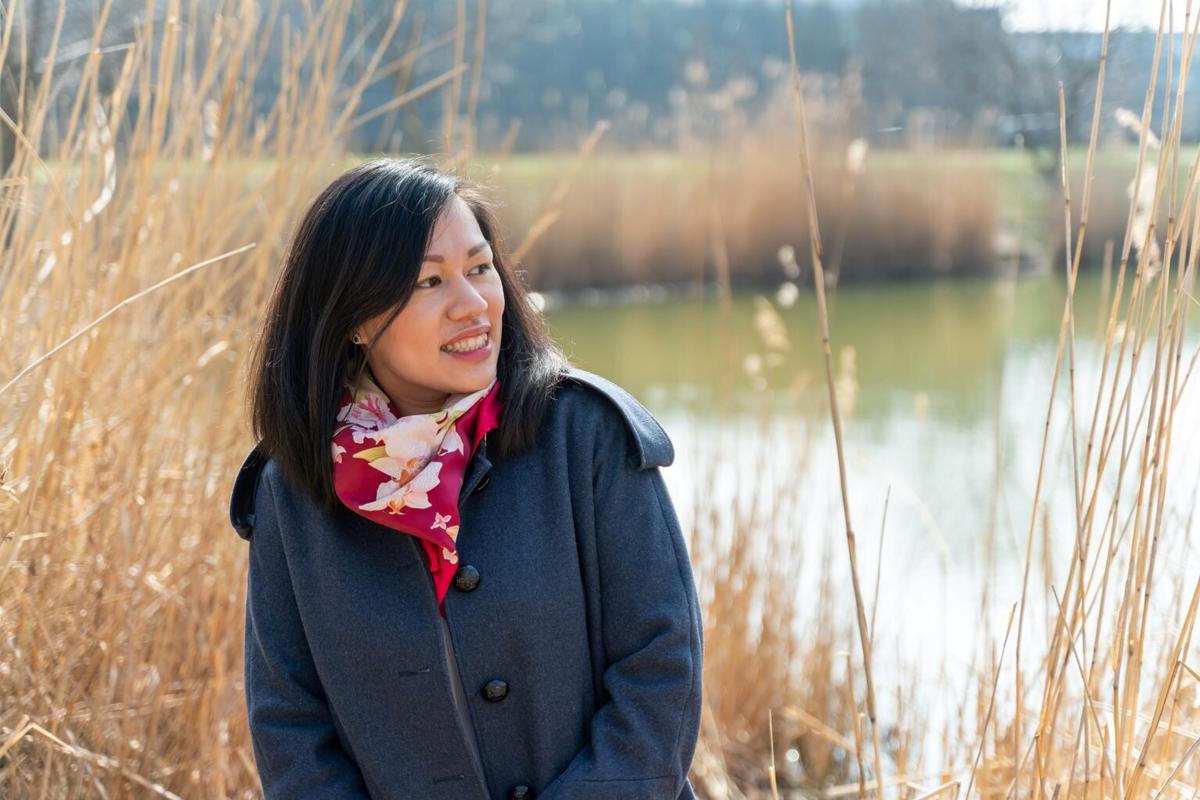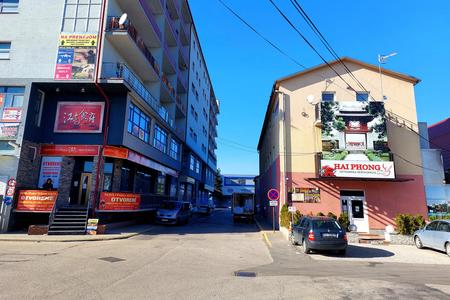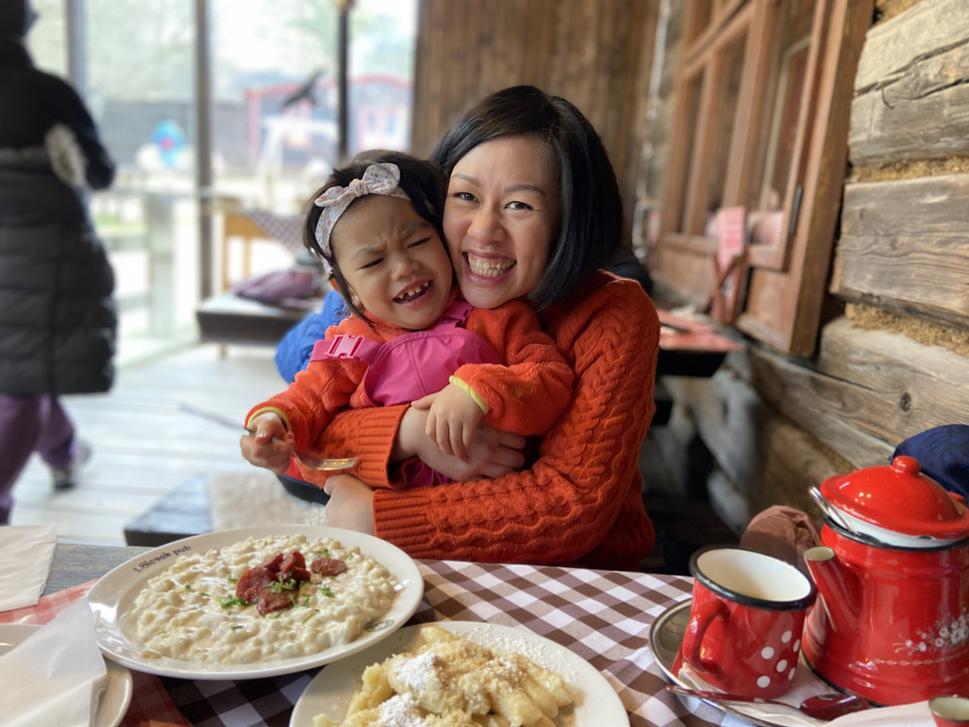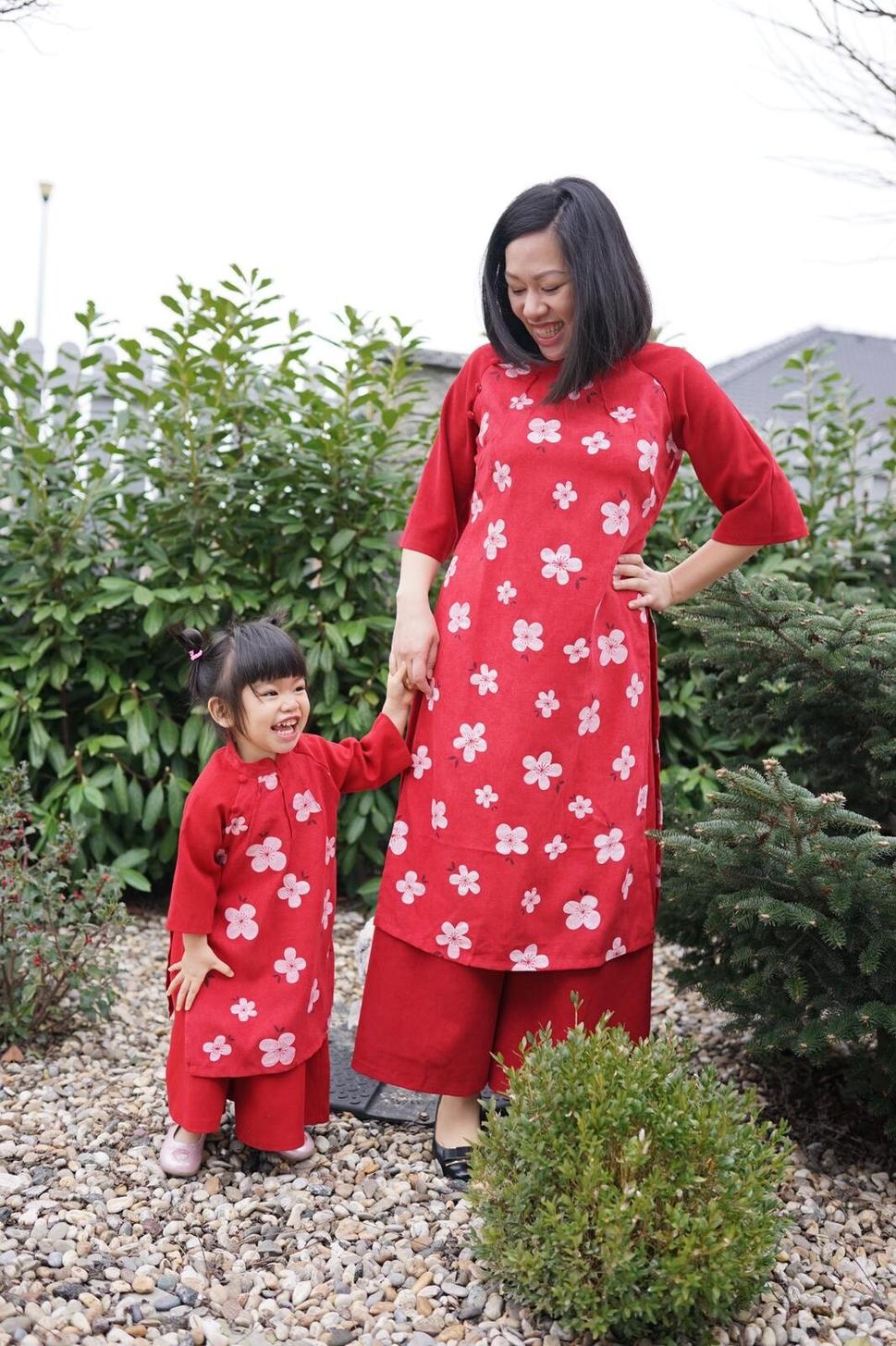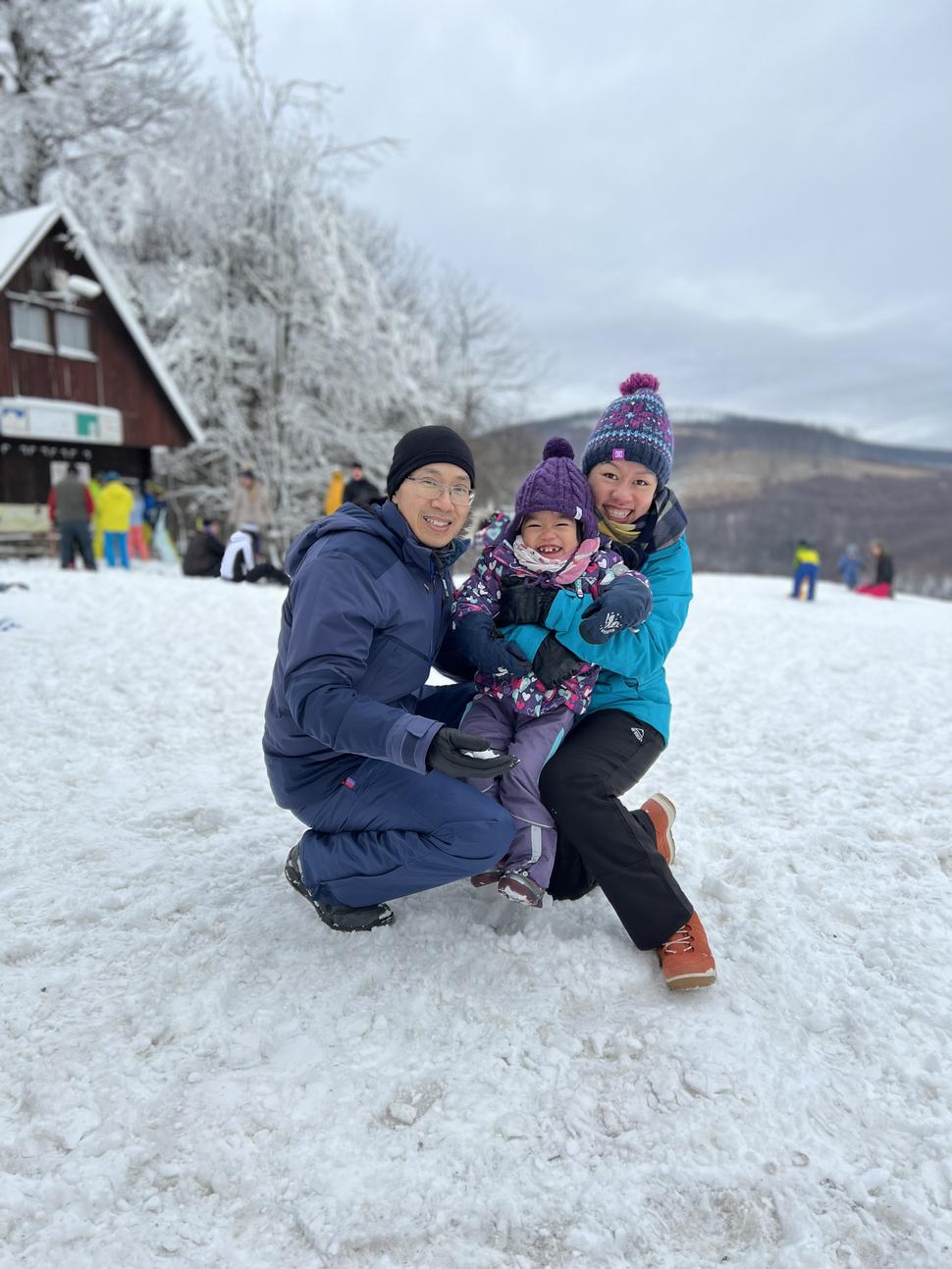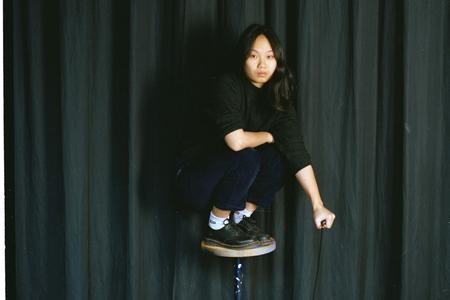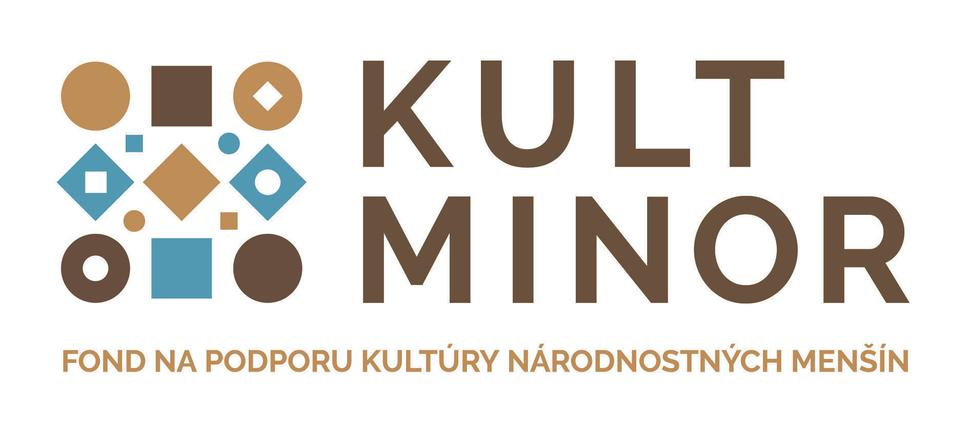On a Monday, when her classmates returned to school after the weekend, they shared what adventures they had experienced in the Bratislava woods, asking Trang Pham Thi Thu about hers.
“You’ve never been to the woods?” they asked bewilderingly.
“In Vietnam, there’s no forest, just a jungle,” Pham Thi Thu, who goes by the name of Niki in Slovakia, had to explain.
She was eight years old when her family moved from northern Vietnam to Bratislava in the early nineties. Hiking, and sports, has never been a hobby that Pham Thi Thu was encouraged to do. She stepped into a forest for the first time during a week-long primary school trip and played handball and football behind her parents’ backs.
“Education has always come first in Vietnamese families,” the 38-year-old Vietnamese Slovak said. She does not support this stand, nor do her parents anymore. “Exploring culture and other things probably matters more than education.”
Pham Thi Thu studied marketing at a university in Birmingham, England, and worked in business development for an oil industry company for eight years in southern Vietnam. Today, she works for Asseco Central Europe, a software company in Bratislava.
Maybe unknowingly, she and other second-generation Vietnamese – often referred to as “Banana kids” because they think European but look Asian - dismantle a stereotype that all Vietnamese people in Slovakia are bistro owners or street vendors selling clothes. There are Vietnamese doctors, consultants and even artists.
Yet, it was not a long time ago that her whole family toyed with the idea of moving back to Vietnam.
“After a few years spent in Vietnam, there were certain things I could not identify with, such as the lack of free speech and environmental protection,” she said. “So we changed our minds.”
Feeling like a foreigner
Vietnam will, however, always be my home, Pham Thi Thu avows.
She grew up in Bratislava, surrounded by the Vietnamese community, but she spent summer holidays in Vietnam mastering her family’s language. After her return, she was supplied with books from Vietnam to stay in touch with her motherland.
Back in the day, when there were not as many Vietnamese people in Slovakia as today, the communities from other Slovak towns gathered in the Slovak capital to celebrate weddings and different holidays such as Tết, the Vietnamese Lunar New Year. Pham Thi Thu’s family never missed out on those parties.
“I’ve always been tied to the community,” she said, joking that she even “imported” her husband from Vietnam.
However, she wished her family had not relocated to Europe when she was little. Every time she flew back to her motherland, she saw Vietnamese students wearing traditional costumes.
“I envied them their life. I often imagined I didn’t live in Slovakia, but in Vietnam,” she remembered. All she wanted to do back then was to fit in, not to be “the only Asian girl in school”.
Though Slovak people had been accustomed to the Vietnamese by the time the nineties came in, there were still stereotypes about the community.
“I grew up listening to people saying: ‘She’s from Miletička,’” Pham Thi Thu said. At this old Bratislava open-air market, many Vietnamese people have clustered together up until now, selling cheap products. “I was unhappy about Slovaks’ perception of us.”
Many Slovaks would have probably been surprised by the fact that she, as a teenager, took part in the Petržalské Súzvuky Ferka Urbánka competition for young writers with her literary works written in Slovak.
“Today, I write in Vietnamese more. I want to get better at it,” said Pham Thi Thu, who is fluent in both languages and English.
Because of her appearance, she still finds Slovaks are often surprised when they hear her speaking fluent Slovak.
“We’re the second generation. Of course, we speak Slovak,” she said. But in Vietnam, she encounters a different kind of situation. “Vietnamese people recognise a foreign accent in my Vietnamese.”
Pham Thi Thu is very clear about who she is, but she also feels like a foreigner in both countries due to her appearance and views.
“I often hold a different opinion than some people in Vietnam,” she said. Pham Thi Thu was raised in democratic Slovakia. Vietnam has a communist government.
In Slovakia and Bratislava, a city that Pham Thi Thu has always seen as her hometown, she has noticed some improvements when it comes to accepting foreigners.
“We’re getting to the point where I could get lost in the crowd,” she said.
At the same time, the behaviour of and the language used by some Slovaks may still “degrade a person that is different”.
“I don’t take it personally. I’ve got used to it,” said Pham Thi Thu.
Both worlds
Unlike her younger brother, who lives in England, Pham Thi Thu returned to Bratislava because of her ageing parents. She had left behind her promising career in Vietnam.
“Family is very important in Asia. It is expected that you return to your family even after you get married,” she explained. Family has an impact on the way we live, she adds. “I’ve never celebrated New Year’s Eve without my parents. We must spend it with family.”
In her teenage years, she had to find a balance between the desire to live a “European life” and her “family’s expectations”.
Her family always comes together to celebrate all major Vietnamese holidays, including Christmas, as they are Catholics. But national holidays marking the end of the Vietnam War or the country’s independence seem too distant a past to Pham Thi Thu.
“Our generation knows there was a war, but we don’t know specifics. We were not taught about them in Slovak school, and our parents often forget that,” she said.
But they did not forget the war and its consequences.
“They are grateful that Slovak people accepted them,” Pham Thi Thu said. Humanity matters to them very much, she notes.
Nevertheless, unlike her, many “Banana kids” have married Slovaks or other foreigners, and their parents may feel sad about it.
“They would like to see their children marry Vietnamese people, not foreigners,” Pham Thi Thu said. The second generation does not see Slovaks as foreigners, though.
In Bratislava, Pham Thi Thu and her Vietnamese husband are raising their three-year-old daughter to appreciate bits of Slovak and Vietnamese cultures. It is important to Pham Thi Thu that her daughter learns to speak Slovak and Vietnamese.
“I’ve even signed her up for a Slovak folk dance group,” Pham Thi Thu said.
Ethnic minority status would help
While Pham Thi Thu often describes herself as a “one and a half”, it remains yet to be seen what her daughter will later identify herself as.
The first-generation is and always will be foreigners, she notes.
“The same applies to the Vietnamese who work in Slovakia round the clock. They have no time to integrate even if they want to,” Pham Thi Thu said.
Many times, 30- or 40-year-old Vietnamese people come to Slovakia and bring their whole families, with the hope that their children will fit in Slovak society better than them. Therefore, Pham Thi Thu supports the Vietnamese community’s ambition to get recognised as another ethnic minority in Slovakia, saying the officially granted status could, among other things, open new channels to help those that do not speak Slovak.
“We would feel less like foreigners and more a part of Slovakia. Psychologically, it will make a difference,” she noted.
This article is part of the Our Minorities project, carried out with the financial support of the Fund for the Support of the Culture of National Minorities.


